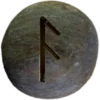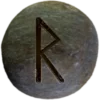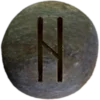Last Updated on June 26, 2025
Table of Contents


The Mythology
The Poetic Edda is a collection of ancient Norse poems that form the foundation of Viking mythology and belief. Written down in the 13th century, these poems were likely passed down orally for centuries before being recorded. The Poetic Edda contains mythological and heroic poems that delve into the lives of the gods, the creation of the world, and the fate of humanity. Unlike the Prose Edda, which offers interpretations, the Poetic Edda presents the stories in their original poetic form, allowing readers to experience the sagas more authentically. ![]()
For Asatru practitioners, the Poetic Edda holds immense significance. It provides one of the clearest links to the beliefs and values of ancient Norse culture. The text offers direct insight into the gods’ actions, their relationships with humans, and their influence on the world. Poems such as the Völuspá (Prophecy of the Seeress) and the Hávamál (Sayings of the High One) are key sources of spiritual guidance for Asatru followers. The Völuspá recounts the creation of the world, the gods’ rise, and the eventual destruction of everything in Ragnarök. The Hávamál, attributed to Odin, provides wisdom on leadership, honor, and living a balanced life.
The mythological poems also influence Asatru rituals and ceremonies. They inspire modern practitioners to align their lives with the virtues of bravery, wisdom, and loyalty seen in the sagas. The heroic poems, which tell of great human figures like Sigurd and the Völsungs, encourage Asatru followers to emulate the courage and honor exemplified by these characters. The poetic nature of the text also preserves the skaldic tradition, making it a vital part of Asatru storytelling today.
Rune Associated with the Poetic Edda
The Elder Futhark runes Ansuz and Raido appear often in connection with themes from the Poetic Edda. Ansuz (ᚨ) relates to divine speech, breath, and inspiration. It links to Odin, who discovers runes through self-sacrifice. This rune symbolizes wisdom and communication. In the Hávamál, Odin speaks of knowledge gained through pain and silence. Ansuz carries that weight of sacred language. ![]()
Raido (ᚱ), tied to journeys and rhythm, connects to movement with purpose. It represents the sacred path, not mere travel. In the Poetic Edda, gods and heroes move between realms. Raido captures this structured motion. It reflects ritual and the path toward understanding.
Both runes emphasize action over stasis. They reflect oral tradition and the journey of transformation. Each rune speaks through story. They are not abstract symbols—they are forces. The Edda gives them breath and motion.
Its Importance to Asatru
The Poetic Edda shapes the beliefs, values, and rituals of many Asatruar. It preserves mythic poems that describe gods, heroes, and cosmic truths. Followers study it to understand deities like Odin and Thor. The text teaches through verse, not dogma. It presents lessons through story and symbol.
Many Asatruar use the Edda during blóts (ritual offerings). They chant verses to honor gods and ancestors. Its language holds power. Words guide action, mood, and meaning.
The Hávamál offers ethical advice and reflections on wisdom. The Völuspá speaks of creation, fate, and renewal. These poems help shape identity and worldview.
The Poetic Edda doesn’t demand belief. It invites reflection. It gives voice to ancient experience while supporting modern practice. Asatruar keep it close—not to follow, but to engage. The poems remain vital, not frozen.
Section links: Grímnismál, Völundarkviða, Helgakviða Hundingsbana, Sigrdrífumál, Völuspá, Hávamál, Völsunga Saga, Fáfnismál, Skírnismál


